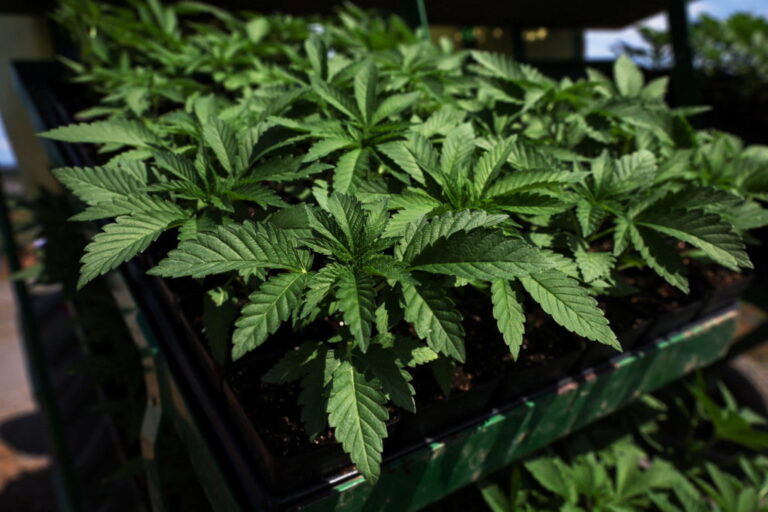As more and more Americans use the increasingly potent form of marijuana, a federal advisory panel is calling for a much different public health approach than “saying no.”
Thursday's report proposes a health-focused strategy that would see the Centers for Disease Control and Prevention play a larger role in cannabis policy.
WATCH: How marijuana reclassification could change U.S. drug policy
“We would like to see more federal leadership in this area,” said Dr. Steven Teutsch of the University of Southern California, who chairs the National Academies of Sciences, Engineering, and Medicine's report committee. The CDC and the National Institutes of Health sponsored this report. A CDC spokesperson said Thursday that the agency is reviewing the recommendations and will need more funding to implement them.
An estimated 18 million Americans report using marijuana daily or nearly daily, which is more than the number of people who frequently drink alcohol.
Currently, 38 states and the District of Columbia allow medical use of marijuana, and many of those states also allow adult recreational use, subject to taxes and sales regulations similar to alcohol. are. Florida voters will decide on recreational use in November.
Marijuana remains illegal under federal law, but the government is taking steps to reclassify it as a less dangerous drug while still keeping it illegal.
Cannabis is becoming more and more powerful, with increasing levels of the intoxicating compound THC. Twenty-five years ago, cannabis flower contained about 5% THC.
“If you go to the store now, it's hard to find products with less than 20% THC,” said Beau Kilmer, co-director of the Rand Center for Drug Policy Research and a member of the report committee.
Read more: New study finds daily use of marijuana is now more common than daily use of alcohol in the US
Cannabis can relieve chronic pain, but evidence for other health benefits is limited due to a lack of research. Risks for heavy users include car accidents and repeated episodes of vomiting that can send you to the emergency room.
For teens, cannabis can interfere with learning and increase the risk of mood and anxiety disorders. Regular use during pregnancy may increase the risk to your baby.
As states passed cannabis laws, public health “took a backseat,” Teutsch said. “Financial interests played an important role in influencing these policies.”
Industry lobbying has thwarted attempts to limit THC levels in Washington state and pesticides in cannabis cultivation in Colorado, the report said.
Aaron Smith of the National Cannabis Industry Association said states must “require product testing for contaminants, truthful labeling practices, and most importantly, keeping cannabis products out of the hands of minors.” It said it was protecting public health by replacing it with regulated businesses. ” Smith said legalizing marijuana nationwide would improve public health through federal regulation.
The report's recommendations to the CDC include:
Develop and evaluate cannabis health campaigns, specifically targeting parents, young people, pregnant women, and people over 65 years of age. Monitor the cultivation, sale, use, and health effects of cannabis. Develop best practices for state regulations, including how to limit access for youth.
For Congress:
It closes a loophole that allows hemp-derived addictive products to be widely sold even in states where other cannabis products are illegal. Eliminate restrictions that prevent the Office of National Drug Control Policy from studying the effects of cannabis legalization.
For states:
Cannabis retail staff requires training and certification. Automatically expunges or seals records for low-level cannabis-related crimes in states that have decriminalized cannabis. Adopts and enforces quality standards set by the United States Pharmacopeia, an independent organization that sets standards for pharmaceutical products and dietary supplements.
Source link

